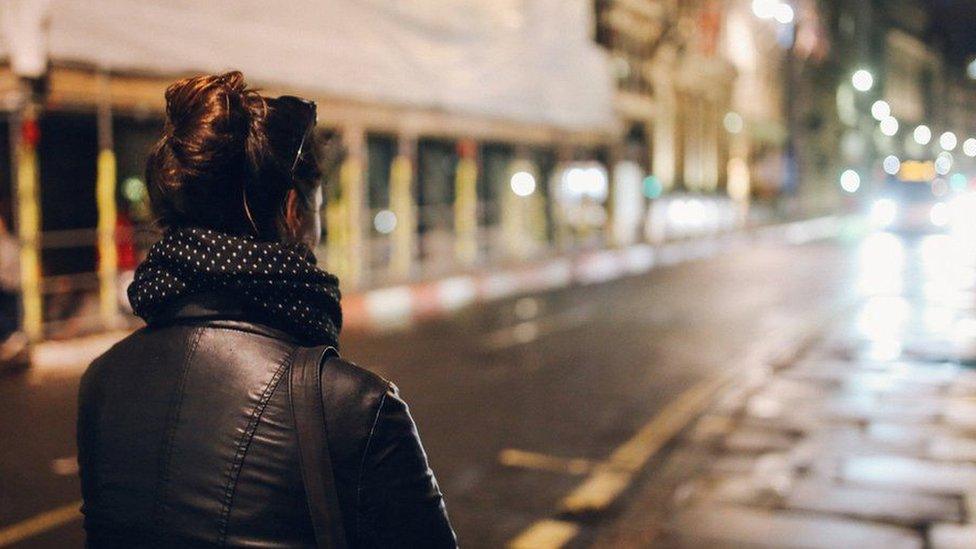Investigator attitudes to rape vary greatly - report
- Published
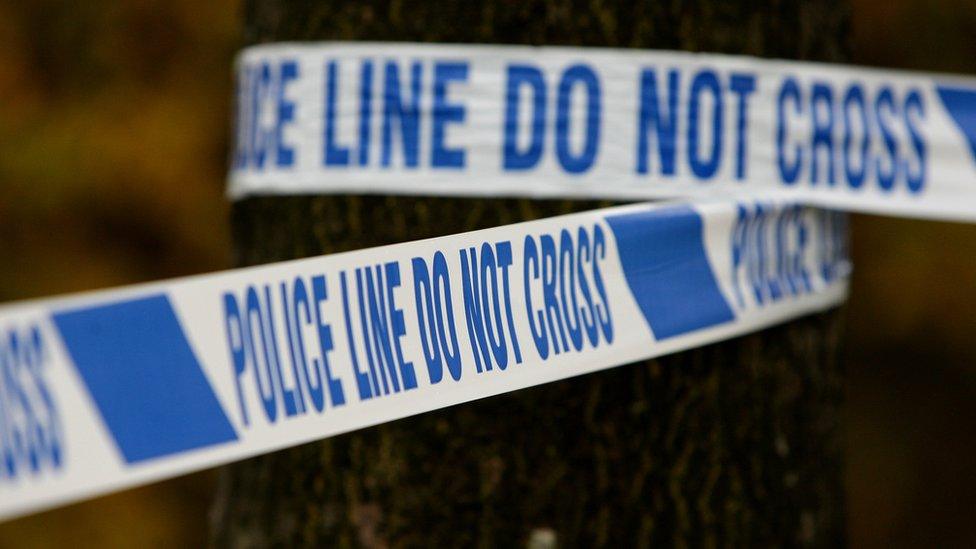
The independent report found "green shoots of change" were evident
Police force investigators display "great variability" in their attitudes towards sexual offending, according to an independent report into four police forces.
It also found some officers displayed "a culture of disbelieving" victims.
But it said "green shoots of change" were evident.
The Metropolitan Police, one of the forces involved, said it was "committed to transforming its response to rape".
The report is part of Operation Soteria,, external which aims to change the ways police forces and the Crown Prosecution Service (CPS) respond to rape and sexual assault cases. Academics were invited into four forces between August 2021 and September 2022.
The four were: the Metropolitan Police Service, Durham Constabulary, West Midlands Police and South Wales Police.
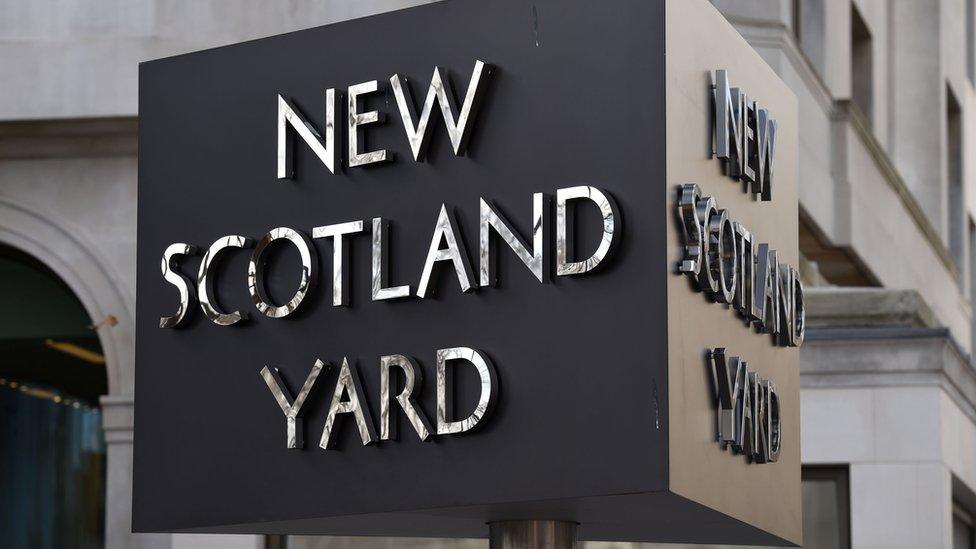
The Met Police said it was "committed to transforming its response to rape"
The report anonymised findings from individual forces but found that:
There was a "disproportionate effort put into testing the credibility of a victim's account".
Some officers "demonstrated explicit victim blaming and lack of belief in the victim", which affected investigations.
Some investigators "lack any introductory learning" about rape and sexual offences and were "overwhelmed" by the volume and complexity of cases.
Across all forces, those investigating rape offences "tended to be young and often inexperienced", some with "very worrying" levels of exhaustion and stress.
The team found "great variability" in the police forces regarding officers' attitudes towards rape and sexual offences.
It said most officers "wanted to provide a good service for victim-survivors". However, in all four forces, the academics found a minority of officers who "displayed a culture of disbelieving victims".
'Big obstacles to overcome'
The report said there were serving officers who did not believe rape and sexual offences "should be a priority for policing", and said challenging this behaviour was "a matter of urgency".
But it said "green shoots of change" were evident, and highlighted instances when "cutting-edge digital training" at the Met Police had resulted in increases in rape detections.
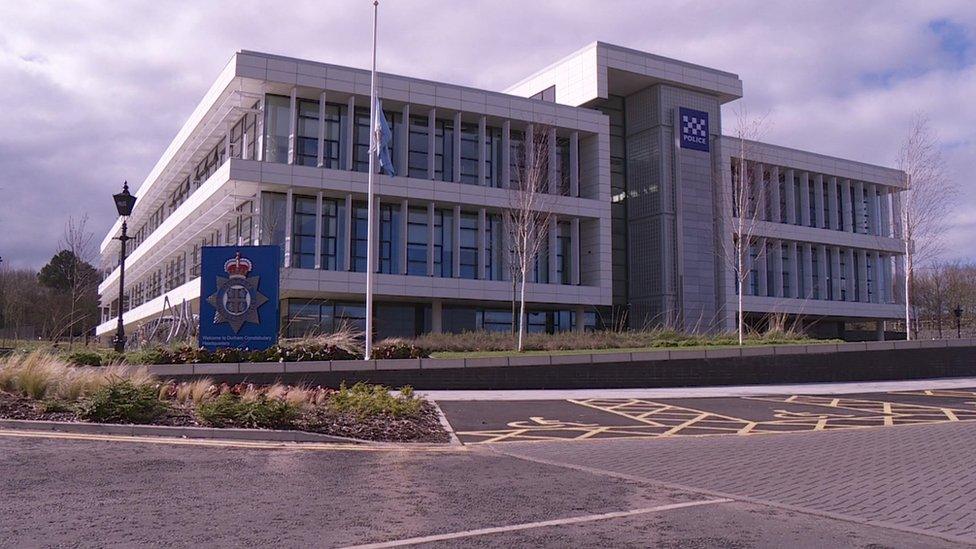
Durham Constabulary was one of four forces to participate
Commander Kevin Southworth said the Met was "working hard" to boost detection rates and "reduce the amount of time victim-survivors spend waiting for justice".
"The sanction detention rate for rape in the Met is currently 5.7%, which is above the national average and steadily increasing. We are also better supporting investigations and working more closely with partners including independent sexual violence advisers, prosecutors and the NHS."
Det Ch Supt David Ashton of Durham Constabulary said some of the report's findings made "for uncomfortable reading", but "some of the findings in Durham are very encouraging".
South Wales Police said the findings "provided the evidence base for a significant uplift in resourcing", which enabled it to "introduce specialist rape investigation teams across the force", increasing the charging rate this year from 5.7% to 9.6%.
West Midlands Police has been approached for comment.
Home Secretary Suella Braverman said there were "big obstacles to overcome" but there were "early signs of improvement".
The programme has been expended to 14 more police forces.

Follow BBC London on Facebook, external, Twitter , externaland Instagram, external. Send your story ideas to hellobbclondon@bbc.co.uk, external
Related topics
- Published7 December 2022
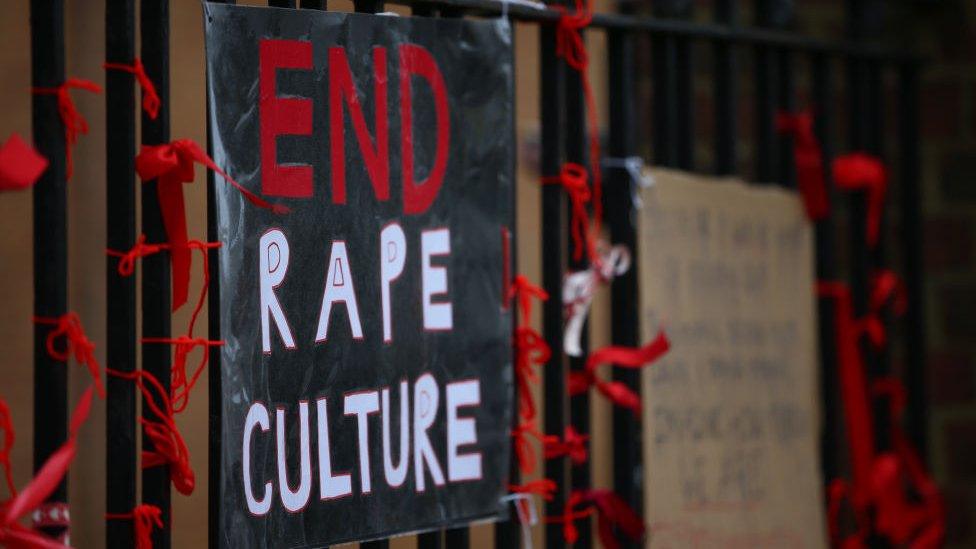
- Published22 July 2022
